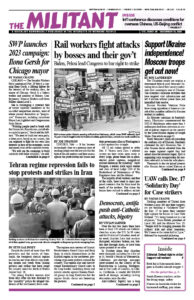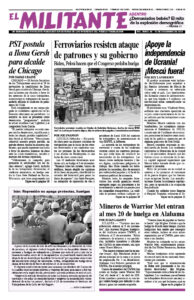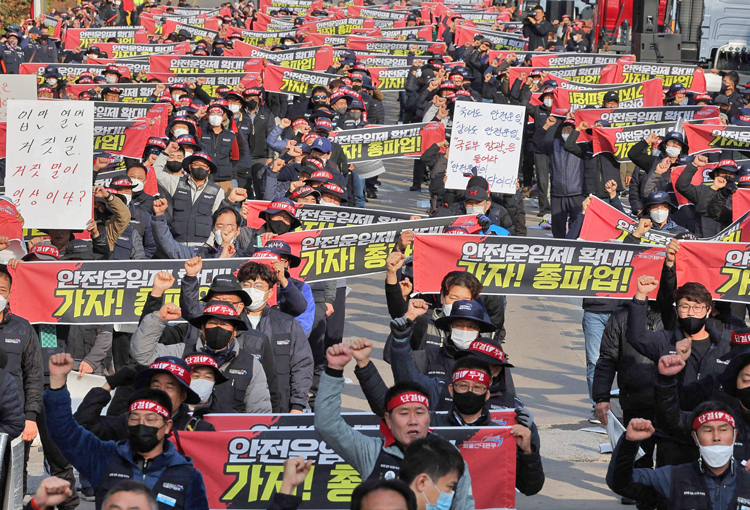Some 25,000 owner-operator truck drivers in South Korea kicked off their second major strike in less than six months Nov. 24, affecting manufacturing, construction and fuel supplies in the world’s 10th-largest economy. Cement-truck drivers joining the action face a government decree ordering them back to work.
“Let’s stop driving, to change the world!” chanted hundreds of truckers as they marched around a depot at Uiwang, south of Seoul.
With fuel costs soaring, the central issue in the strike is truckers’ demand that the government make permanent the Safe Trucking Freight Rates, established during the pandemic and due to expire at the end of the year.
“The Safe Rates system sets minimum rates of pay for truck drivers who own their own trucks, ensuring that they can cover the costs of operating their vehicles and make a decent living,” Wol-san Liem, vice chairperson of the International Transport Workers’ Federation, Road Transport Section, told the Militant by phone. It “alleviates pressures on them to speed, overload their vehicles and drive long hours while fatigued.
“The system currently covers only drivers who carry bulk cement or containers,” said Liem. “The vast majority of Korean truck drivers believe the system should be made permanent and its coverage expanded.”
The truckers’ union reports that 700 people die in truck accidents every year.
The Cargo Truckers Solidarity Union, which is organizing the strike, estimated 22,000 of its 25,000 members participated in 16 rallies across the country on the first day of the action.
In June, truckers ended an eight-day strike after the Ministry of Land, Infrastructure and Transport agreed to extend the Safe Rates system and said it would discuss its expansion to other drivers.
But now “the government is backtracking on its promise, to the detriment of workers and public safety,” Bongju Lee, president of the Korean Federation of Public Service and Transport Workers’ Union, Truckers Solidarity Division, told the press. “We are prepared to strike until that changes. It’s as simple as that.”
As cement shipments have dropped, concrete laying has halted at hundreds of building sites. South Korean President Yoon Suk-yeol signed an executive order Nov. 29 instructing 2,500 cement-truck drivers to return to work, the first time that such an order has been used against striking transport workers. Failure to comply can result in the revocation of a trucker’s license and three years in jail, or a fine.
The executive order “threatens truckers with the loss of their livelihood,” Wol-san Liem said. “This is a violation of truckers’ freedom of association and truckers will not back down.”
At one of the rallies the union organized Nov. 29, Bongju Lee said strikers will defy the order.


